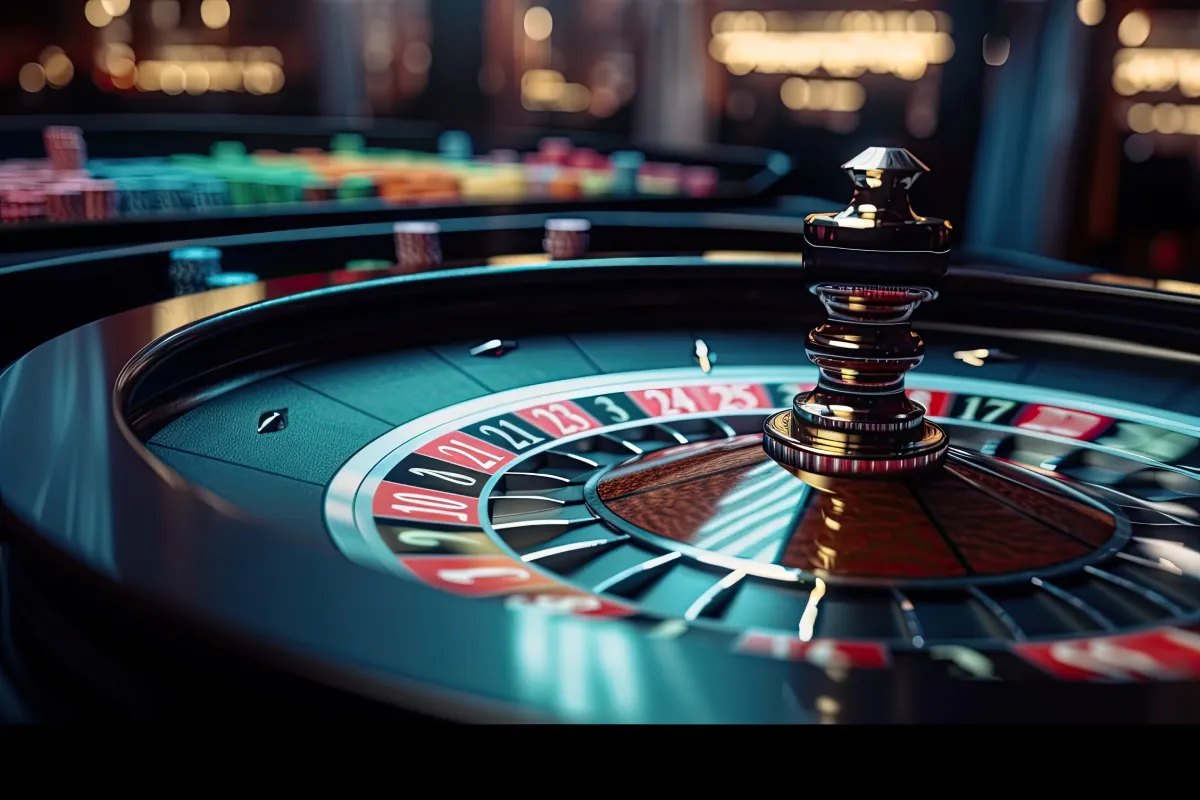When Routine Feels Scarier Than Risk
To outsiders, casino risk looks intimidating; to many seasoned players, what’s truly frightening is the return to the everyday – schedules, inboxes, obligations, and the monotone of predictability. The casino (on your phone or in a live room) offers something the calendar rarely does: a compact story with suspense, choice, and a recognizable crescendo. Whether you encountered a lobby through a friend, a streamer, or a portal like Casinoly GR, the pattern is familiar: risk does not only promise money; it offers a temporary identity where uncertainty feels like oxygen. This article, written from inside the industry, aims to explain a paradox we hear often: “I’m more afraid of the grind than the gamble.” We’ll break down the neurobiology, behavioral economics, culture, interface design, and identity work behind that statement – and we’ll finish with practical guardrails for players and ethical ideas for operators.
What Do We Mean by “Fear of a Normal Life”?
“Normal life” is shorthand for routines built around stability: commutes and calendars, recurring bills, caretaking, deadlines, and the social scripts that define “responsible adulthood.” For many, these scripts are reassuring. For others, they trigger a specific cluster of reactions:
- Boredom intolerance: low tolerance for repetitive tasks and predictable outcomes.
- Meaning hunger: a sense that routine lacks symbolic “peaks.”
- Autonomy scarcity: too many obligations, too few self-authored moments.
- Status anesthesia: success markers (titles, grades, likes) feel thin compared to live suspense.
In this context, the casino isn’t only entertainment; it’s a counter-environment that restores intensity, authorship, and the feeling of being awake.
The Nervous System’s Side of the Story: Arousal vs. Flatline
The human brain privileges change over sameness. Uncertainty activates attention systems, increasing dopamine tone and sharpening focus. Routines conserve energy but dampen salience. After long periods of sameness, risk can feel like a physiological relief: heart rate lifts, the senses narrow, and the world brightens.
- Anticipation > outcome: dopamine peaks before the result. This is why the moment before the card turns or reels stop feels bigger than the result itself.
- Time compression: suspense compresses minutes; the workday stretches them.
- Action analgesia: goal-directed action (place, wait, reveal) reduces rumination; repetitive life admin often amplifies it.
For players prone to boredom or rumination, risk feels regulation-enhancing; routine feels regulation-depleting.
The Behavioral Economics of Routine Aversion
1) Process Utility vs. Expected Value
Expected value (EV) prices outcomes; process utility prices the experience of getting there. “Normal life” often maximizes EV (salary, savings) with minimal process utility (little suspense). Casino play flips the ratio: low EV, high process utility. Some players accept the trade as entertainment – danger arises when they seek life meaning primarily through risk loops.
2) Reference Points and Elastic Targets
Routine sets stable benchmarks (monthly pay, rent due). Play creates moving targets: the moment a win hits, the target inflates. Players used to dynamic targets may find routine’s fixed goals emotionally under-stimulating – hence the fear of returning to them.
3) Sunk Cost and Identity
In routine life, sunk costs are invisible (years in a career). In play, sunk costs are immediate (hands, spins, minutes). The crispness of casino feedback can feel more honest than fuzzy long-term investments – even when the math is worse.
Identity Economics: The Self You Get to Be in a Casino
People don’t only choose games – they choose roles:
- The Strategist: disciplined, plan-driven; gets dignity from execution.
- The Explorer: curious, novelty-seeking; values unlocking features and themes.
- The Socialite: chat, banter, live-dealer theater.
- The Tourist: soft volatility, brief stays, a gentle finale.
Daily life can compress identity into narrow roles (manager, parent, student). A session expands it. Fear of the “normal” often masks fear of identity shrinkage. The solution is not “more gambling,” but more authored identity in ordinary time.
The Sociology of Predictability: Scripts, Status, and “Face”
Society rewards predictability – on-time deliverables, stable demeanor, patient savings. But status signaling isn’t monolithic. In certain circles (creative fields, startups, streaming culture), risk-taking signals vitality. Players embedded in such communities may fear that a “normal life” equals social invisibility. Casino performance – wins, near-wins, clips – becomes a way to be seen. The healthiest antidote is to diversify status sources: friendships, craft, volunteering, sport – so casinos aren’t responsible for your sense of existence.
Design Dramaturgy: Why Casinos Feel Like Opposites of Routine
Great casino products are built with pacing and contrast:
- Contrast: dark canvases with bright event colors; routine has low contrast.
- Pacing: loops of suspense → reveal → reset; routine is often reveal-free.
- Agency theater: you control stake, speed, and exits; routine agency can feel outsourced.
- Fanfare with restraint: meaningful events get proportionate celebration; routine milestones rarely do.
This dramaturgy creates an aesthetic of significance that day-to-day life seldom offers. Recognizing the craft helps players enjoy it without treating routine as unlivable.
Nightfall Psychology: Why Evenings Amplify the Fear of Normalcy
After dark, interruptions fade, and ambient evaluation drops. Players report:
- Softened self-critique: it’s easier to inhabit roles (Strategist, Explorer) without the inner boss.
- Social quiet: fewer pings and obligations – authorship returns.
- Time drift: flow compresses minutes; tomorrow’s routine looks farther away.
Night sessions can be delightful; they’re risky if they repeatedly steal sleep or become the only place that feels authored.
The “Almost” Magnet: Near-Miss as Anti-Routine
Near-misses are losses presented with suspense and warmth. Psychologically, they are catnip for routine-averse players:
- Ambiguous resolution: normal life gives you tasks completed or pending; near-miss suspends resolution and invites “again.”
- Story elongation: “I’m in something,” players say, even when down.
- Memory inflation: almost-events dominate recollection, outshining ordinary commitments.
Ethical UX keeps near-miss cues cooler and shorter, so players can distinguish theater from event and opt for a pause.
Why “Normal” Feels Empty After Big Wins
Counterintuitively, a sizable win can deepen the dread of routine:
- Anticipation crash: after a peak, routine looks flatter than before.
- Moving-reference whiplash: yesterday’s goals feel small; the brain wants a larger arc.
- Identity hangover: if the win put you in a heroic role (the “closer,” the “hot hand”), the next day’s roles feel too small.
The fix isn’t “a bigger win” – it’s designing endings that let triumph coexist with routine rather than embarrass it: bank, screenshot, quick note, a small real-life treat that translates peak into memory.
Case Vignettes (Composite, Realistic)
Elena, 31, Teacher (Explorer)
The school day is tightly scheduled. Saturdays she sets a 60-minute exploration window, mid-volatility, exit on first feature after minute 40. Her “fear of normal” dissolves not from risking more, but from authoring a contained, bright chapter. She also adds weekday micro-adventures (new café walks, sketching) so intensity isn’t casino-exclusive.
Hadi, 44, QA Engineer (Strategist)
Weeks of regression testing sap novelty. He plays measured blackjack sets: two “shoes” or +€X/–€X. The routine dread drops because he feels competent somewhere. He translates that feeling into work by adding a weekly bug-hunt “tournament” with small team prizes – bringing suspense into his normal.
Nina, 27, Designer (Socialite)
Remote work is quiet; live tables give her social spark. She fears the silence of normalcy. Nina creates post-work rituals (group climbs, improv class). Casino nights remain, but aren’t the only stage.
The Healthy Middle: Keep the Color, Keep the Clock
The goal isn’t to shame desire for suspense; it’s to frame it:
- Price play as entertainment, not income. You’re buying a story, not renting a paycheck.
- Schedule endings. Events (feature after minute X, second clear peak) make stopping feel like a finale, not a comedown.
- Diversify drama. Add non-casino suspense to your week: sport, craft deadlines, open mics, hard recipes.
- Author everyday peaks. Turn routine into chaptered arcs – start music, 25-minute sprints, visible “done” boards.
When ordinary life gets more authored, the casino stops carrying all the color.
Player Toolkit – Build Agency Beyond the Spin
1) One-Sentence Session Plan
“Tourist mode, 45 minutes, entertainment €X; exit on +€Y/–€Z or the first feature after minute 30.”
You just wrote a beginning and an ending. Fear shrinks when exits are authored.
2) Persona Pick
Choose Strategist / Explorer / Socialite / Tourist. Every 15 minutes, ask: “Am I still in character?” Identity consistency feels safer than improvisation.
3) Dual Display On
Show credits and currency. Concrete value reduces dissociation and helps you integrate play with reality.
4) Stake-Up Breath
Before any increase, breathe 4 in / 6 out with finger off the button. If the urge survives oxygen, proceed; if not, you saved yourself from a hot-state move.
5) Win or Loss Ritual (10 Seconds)
Mute → breathe → screenshot → bank (or not) → one-line note (“+€42, calm; end”). Ritual converts math into memory and makes endings feel like events.
6) Night Rules
Shorter sessions after 22:00, lower volatility, no back-to-back chapters. Protect tomorrow’s routine from becoming the villain.
7) Weekly Three-Number Audit
Hours, net, largest drawdown. If drawdown > comfort, auto-reduce stakes 25% next week. You’re building a boringly powerful habit: honest review.
8) Everyday Peaks Calendar
Add two non-casino peaks to your week (team sport, creative sprint, social dinner). If casinos stop being the sole source of spark, fear of “normal” recedes.
Operator & Designer Playbook – Respect Autonomy, Support Endings
- Proportionate fanfare: Meaningful wins get rich color/sound; micro-wins stay modest so peaks remain peaks.
- Clear categories: Near-miss cues are cooler and shorter; loss is visually unambiguous.
- Natural intermissions: Soft prompts after features (“Bank now?”, “Take a breather?”) make pauses graceful, not punitive.
- Stake-up friction: A dignified half-second confirm, especially post-spike.
- Dual-economy default: Credits and currency visible by default.
- Exportable ledgers: Make private audits effortless; future selves deserve clean data.
- Persona-aligned modes: Explorer gets discovery tips; Strategist gets crisp exit tools. Agency is the anti-fear.
Ethical design doesn’t flatten thrill; it frames it inside choices players can be proud of.
Myths to Retire About Gamblers and “Normal Life”
- “They hate responsibility.”
Many love responsibility; they dislike low-agency routines. Give them authored tasks and they thrive. - “They’re addicted to money.”
Often they’re attached to suspense and self-authorship. Money is a symbol and a score, not always the motive. - “If they just won big, the fear would vanish.”
Peaks deepen contrast. Without designed endings and meaningful routines, big wins can make daily life look flatter. - “Casinos create the fear.”
Casinos amplify a preexisting dynamic (boredom intolerance, autonomy scarcity). The remedy is holistic: life design + play design.
Micro-Experiments (Fast, Revealing)
- Grayscale Test (5 minutes): Toggle your device to grayscale. If engagement drops, color was carrying too much weight. Choose calmer palettes next session.
- Two-Peak Rule (1 session): End on the second clear positive spike. Stopping will feel like completing a pattern, not killing a vibe.
- Near-Miss Naming (10 events): Whisper “loss” after every near-miss; watch urges turn into choices.
- Stake-Change Gate (10 seconds): Finger off the button; count to ten before any stake increase. If the count feels unbearable, you’re hot – pause.
- Routine Peak Hack (1 week): Add a visible “finale” to a daily task: playlist + 25-minute sprint + “done” snapshot. You’re importing casino dramaturgy into everyday life – ethically.
Frequently Asked Questions
Isn’t fear of normal life just immaturity?
No. It’s often a signal of autonomy scarcity and meaning hunger. Address those and fear declines – even without gambling changes.
Can casinos help reduce this fear rather than exploit it?
Yes. By building for clarity (dual display), proportionate celebration, real breathing spaces, and player-authored limits, operators support agency – the antidote to dread.
Won’t rules kill the fun?
Good rules sharpen color. Chapters and finales turn sessions into stories you can remember with pride, not fog.
How do I know if my play is compensating for a life gap?
If casinos are your exclusive source of suspense or authorship – and non-casino peaks feel flat – diversify immediately. Add real-world arcs you own.
Red Flags & Green Lights
Red Flags
- Hiding sessions or stakes from affected people
- Repeatedly skipping sleep or obligations after play
- Only feeling “alive” during sessions
- Improvised endings every night
- Chasing wins or losses to manufacture meaning
Green Lights
- One-sentence plan and event-linked exits
- Dual display on; clean, quick notes after sessions
- Ability to scale stakes down without ego bruise
- Non-casino peaks scheduled weekly
- Ending on time most nights – and liking the ending
Responsible Play, Always
Gambling is entertainment, not income or anesthesia. If you notice secrecy, borrowing to play, chasing, or repeated interference with work or relationships, take a structured break. Use cooling-off tools, lower limits, or self-exclusion features and consider professional support in your region. The best sessions feel bright and bounded – and fit inside a life you’re proud to inhabit.
Conclusion – Bring the Storycraft Home
The fear of a “normal life” is rarely about laziness; it’s about story starvation. Casinos provide story on tap: suspense, choice, reveal, and proportionate fanfare. That’s why players who dread routine keep returning. The sustainable answer is not to extinguish thrill but to re-distribute authorship: write endings before sessions start; give everyday tasks beginnings and finales; diversify your peaks; and let casino nights be what they are at their best – chosen, bounded chapters that illuminate your week rather than overshadow it.
When you learn to craft stories outside the lobby, risk stops being your only oxygen. You’ll still enjoy the color and crescendo of a well-made game – but you won’t fear the calendar. You’ll carry dramaturgy into daily life, the truest win of all: a normal that isn’t gray, because you authored the palette.



